According to PwC Vietnam's 2023 Vietnam Family Business Survey Report - Transforming to Build Trust released on June 13, compared to the 2021 survey results, Vietnamese family businesses have had good business growth results in 2022, with 53% of businesses reporting growth in sales, of which 36% of Vietnamese businesses participating in the survey said they achieved double-digit growth. However, Vietnamese family businesses are starting to adjust their growth ambitions in the context of many economic uncertainties. Only about 14% of businesses expect strong growth in the next two years, less than half the result of 33% in PwC's previous Vietnam family business survey. Vietnamese SMEs also prioritize improving digital capabilities and rethinking business operations, considering changing/adjusting their business models with the top priority being expanding to new markets within the next two years.
Accordingly, family businesses need to focus on their strengths to adapt and develop. And strength comes from relationships, or in other words, building trust with stakeholders is necessary.
Vietnamese family businesses face “trust gap”
PwC’s survey shows that Vietnamese family businesses, like their global and regional counterparts, are facing a trust deficit. Specifically, family businesses value the trust of customers, employees and investors, but they believe that they have not fully earned the trust of these key stakeholders. It is clear that family businesses need to close the trust gap between themselves and their key stakeholders.
The survey found that the four key stakeholders that ensure future growth and success include: Customers, investors, employees and family members. Customers (75%), employees (61%) and investors (61%) are the most important stakeholders for family businesses to build trust with. Meanwhile, the trust of family members is considered less important (28%).
Customer trust is paramount
Recognizing the importance of building trust from customers, family businesses have placed customer satisfaction as their top business goal (86%). Although more than 90% of Vietnamese consumers are willing to pay more for ethically and sustainably produced products, the survey shows that Vietnamese family businesses have not really focused on environmental, social and governance (ESG) and diversity, equity and inclusion (DEI) issues. Specifically, when asked to rank the top five priorities for the next two years, only 17% of respondents chose to strengthen their organization’s social responsibility; 6% chose to improve performance related to diversity and inclusion; none chose to reduce the organization’s carbon emissions and support local communities.
This is the time for Vietnamese family businesses to seize the opportunity and shift their focus and resources to ESG as well as show their actions to customers. However, only 34% of respondents said that their businesses regularly communicate information about the results of implementing the established non-financial targets. Mr. Nguyen Hoang Nam, Deputy General Director, ESG Advisory Services Leader, Audit and Assurance Services, PwC Vietnam said: “Reporting on non-financial targets related to ESG can be complicated. However, family businesses can start small by focusing on key ESG issues relevant to the industry and its stakeholders. For example, businesses can share how they protect data privacy, which is a matter of great concern to consumers. Or, family businesses can share about their social responsibility/charitable activities, which according to our survey, 72% of family businesses are currently carrying out.”
By being transparent about their business practices and maintaining consistent quality in their products or services, family businesses can create a solid foundation for building trust with their customers. And this can lead to long-term success.
Trust within the family is not focused on
PwC's survey found that about 40% of respondents acknowledged low levels of trust among family members, especially between the next generation (NextGen) and the incumbent generation; and between board members and others.
Nearly a third (28%) consider it important to be trusted by family members, much lower than the global (63%) and Asia-Pacific (54%) averages. This may explain the finding that 64% of respondents reported that family conflicts in the business were common, much higher than the global (30%) and Asia-Pacific (29%) averages.
To build trust internally, generations need to work closely together to establish family governance structures and business practices that professionalize family businesses. PwC’s research shows that two key areas need to be addressed: clarifying the roles and responsibilities of those involved in running the business and establishing shared values and goals.
Building trust to protect family business
To protect family heritage, family businesses need to broaden their focus and adopt a new, transformative approach to building trust.
This means that family businesses will need to change policies and practices, review priorities, and communicate those changes to all stakeholders and across generations. Businesses should focus on three priority actions:
1. Establish two-way communication with stakeholders: Family businesses need to model strong ideals in their relationships with both internal and external stakeholders, starting with a fair internal system for reporting misconduct and a clear feedback mechanism for customers. These are tangible solutions that help build trust.
2. Build trust through transparency: businesses need to report publicly and regularly on their ESG and DEI goals and how they are performing against them.
3. Speaking up on social issues: DNGĐ are expected to play a more active and proactive role on social issues, and be more bold in sharing their views and actions on social issues such as gender equality, gender diversity (LGBTQ+) and putting them on public forums or company statements.
Mr. Jonathan Ooi, Partner, Family and Private Enterprise Services Leader, PwC Vietnam emphasized: “The post-COVID world is facing many challenges due to geopolitical fluctuations and economic impacts, forcing businesses to shift to seek unexplored and untapped opportunities and markets. In particular, family businesses have realized that trust is a valuable asset, the foundation for business success and an important differentiator that creates competitive advantage today. In addition to making transformational changes to build trust, family businesses need to demonstrate their values through specific efforts and clearly communicate them to stakeholders, including customers, employees, family members and the general public.”./.
Source link



![[Photo] Sparkling lanterns to celebrate Vesak 2025](https://vphoto.vietnam.vn/thumb/1200x675/vietnam/resource/IMAGE/2025/5/7/a6c8ff3bef964a2f90c6fab80ae197c3)


![[Photo] Prime Minister Pham Minh Chinh chairs meeting to review preparations for trade negotiations with the United States](https://vphoto.vietnam.vn/thumb/1200x675/vietnam/resource/IMAGE/2025/5/6/1edc3a9bab5e48db95318758f019b99b)





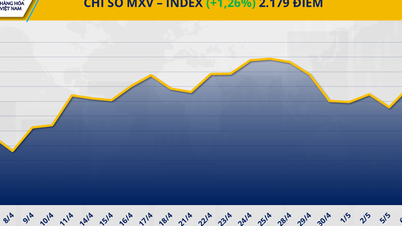











![[Photo] Prime Minister Pham Minh Chinh receives Mr. Tomas Heidar, Chief Justice of the International Tribunal for the Law of the Sea (ITLOS)](https://vphoto.vietnam.vn/thumb/1200x675/vietnam/resource/IMAGE/2025/5/6/58ba7a6773444e17bd987187397e4a1b)























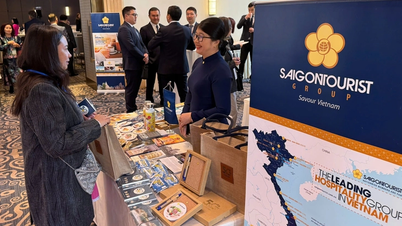





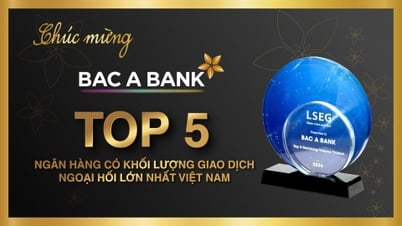

















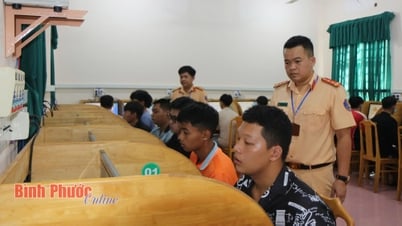







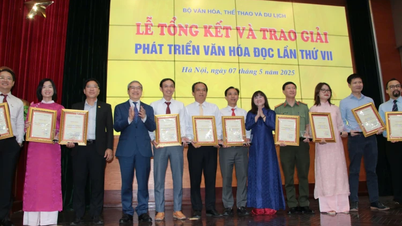










Comment (0)